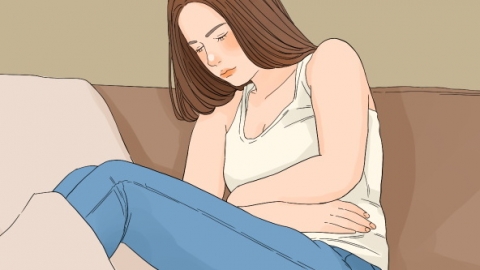What to do about poor physical condition after menopause at age 39
Generally, poor physical condition after menopause at the age of 39 may be caused by factors such as a sudden drop in estrogen, inadequate nutrient intake, osteoporosis, iron-deficiency anemia, and hypothyroidism. It is recommended to seek medical attention promptly, identify the underlying cause, and improve health under a doctor's guidance through lifestyle adjustments, medication, and other treatments. Specific analyses are as follows:

1. Sudden Estrogen Decline: After menopause, ovarian function declines and estrogen secretion drops sharply, leading to slower metabolism and reduced immunity. This often manifests as fatigue, low energy, and general weakness. Increase intake of soy products to supplement plant-based estrogens, and engage regularly in mild exercises such as brisk walking or yoga to improve bodily functions.
2. Inadequate Nutrient Intake: Without timely dietary adjustments after menopause, deficiencies in protein, calcium, vitamin D, and other nutrients can impair tissue repair and immune function, worsening physical frailty. Adjust the diet by consuming sufficient lean meat, milk, and eggs daily for protein, and eat more dark green vegetables and fish to boost vitamin D levels.
3. Osteoporosis: Reduced estrogen accelerates bone loss and decreases bone density, causing symptoms like back pain, fatigue, and increasing fracture risk. In addition to calcium and vitamin D supplementation, medications such as alendronate tablets, zoledronic acid injection, or salmon calcitonin injection may be used under medical supervision to inhibit bone resorption.
4. Iron-Deficiency Anemia: Blood loss or insufficient dietary iron intake around the time of menopause may lead to decreased hemoglobin levels, resulting in dizziness, fatigue, and pale complexion—signs of poor physical condition. Iron supplements such as ferrous succinate tablets, ferrous fumarate granules, or sustained-release ferrous sulfate tablets may be taken as directed by a physician.
5. Hypothyroidism: Thyroid function may decline after menopause, with insufficient thyroid hormone production slowing metabolism and causing cold intolerance, fatigue, weight gain, and other signs of weakened constitution. Hormone replacement therapy using levothyroxine sodium tablets, thyroid extract tablets, or liothyronine sodium tablets should be administered according to medical advice.
Maintain a regular daily routine, avoid staying up late, and keep a positive mood to minimize the negative impact of anxiety on health. Regular health check-ups are essential to monitor indicators such as bone density, complete blood count, and thyroid function, allowing early detection and intervention for abnormalities, thereby gradually improving overall physical condition.




